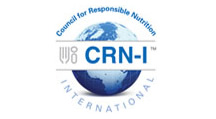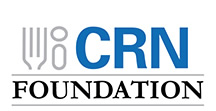Self-regulation is the process by which an industry develops its own expectations for industry conduct and monitors its own self-adherence to legal, ethical, quality, or safety standards.
In the case of the dietary supplement industry, self-regulation does not replace the need for companies to follow the myriads of federal, state, and local laws and regulations governing the industry. Rather, self-regulation complements and enhances government regulation, allowing the industry to develop new standards as science and the market evolve. It cultivates and protects consumer confidence for those Americans who rely on dietary supplements as part of a healthy lifestyle.
CRN proudly serves as a conduit for developing and implementing a range of voluntary programs for its members. From its inception, CRN has relied on scientific evidence to support its positions on behalf of the industry. Using that as a foundation, CRN has built a hierarchy of rigorous self-regulatory standards that serve as guiding principles for its members. These standards may be used to evaluate applicants for membership and when serious noncompliance is evident, these requirements may be an obstacle to membership. Likewise, a CRN member who is not observing a requirement of membership should be given notice and the opportunity to correct that action, but repeated failure to comply may be considered as a reason for expulsion.
Code of Ethics
The Code of Ethics is the ethical foundation that all CRN members must agree to as a condition of membership. As part of the membership application, new members must certify their commitment to comply with this Code of Ethical Principles and to continue to uphold these Principles during their membership in CRN. Renewing members likewise recommit to uphold these aspirational principles in their annual renewals.
The Supplement OWL
The Supplement OWL (Online Wellness Library), CRN’s industry-wide dietary supplement product registry is a database of all dietary supplements sold by CRN members and other supplement manufacturers, creating a comprehensive picture of the marketplace for regulators, retailers, and industry. The Supplement OWL serves as a resource for these audiences to identify products, the ingredients used, and the companies who market them, along with permitting registry users to examine and evaluate labels and other product information. The Board of Directors has mandated that all CRN members with finished products in the U.S. market must provide these labels to the program and should periodically (at least once a year) review their company’s entries in the OWL for compliance as new products are introduced and some products are withdrawn from the U.S. market. New CRN members generally have 12 months from their admission to place their existing products in The Supplement OWL.
The next level of standards and a hallmark of CRN’s self-regulatory efforts are its assortment of voluntary guidelines, best practices, and considerations. These programs have been developed by CRN member companies and approved by its board of directors. While not mandated, all members are strongly urged to abide by them, along with following all government regulations.
Voluntary Guidelines, Best Practices, and Considerations
CRN maintains a collection of voluntary guidelines and best practices for its members. Unlike the Code of Ethical Conduct and The Supplement OWL, conformance with these guidelines is not a condition of membership, however, CRN strongly urges its members to adopt these practices. Adoption of new voluntary programs typically includes a timeframe for expected implementation. New members are generally expected to comply within 12 months of their admission to CRN, or, at the same time as existing members, whichever is greater, if particular programs have been recently enacted and are not yet fully implemented.
1. Voluntary Guidelines
Voluntary Guidelines developed by CRN are not a requirement of membership but are strongly encouraged for members. They are typically developed by a task force or working group of impacted members and given final approval by the Board of Directors. CRN considers Voluntary Guidelines to reflect the standard for industry practice. They should be specific, measurable, achievable, and able to be fully implemented by all members of the industry.
2. Best Practices
Best Practices are recommendations that exceed federal requirements and that “best in class” companies in the industry should follow. Although aspirational, Best Practices should be specific enough to implement and be measurable. They are recommended for CRN members but are not a condition of membership and should not be presented as “required” by all members of the industry.
3. Considerations
Considerations are just that: items a CRN member should consider in relation to a specific topic, such as product development, marketing, manufacturing processes, or other practices. They should not be portrayed as an industry standard or an expectation for membership. Considerations reflect the combined thinking of CRN members on a specific topic and offer companies alternatives or areas for future improvement. Considerations may be aspirational or may be incapable of measurement.
Access CRN self-regulatory documents:
 Six ethical principles all CRN members pledge to observe and uphold with respect to customers, suppliers, competitors, regulators and consumers to foster confidence in dietary supplements and functional food.
Six ethical principles all CRN members pledge to observe and uphold with respect to customers, suppliers, competitors, regulators and consumers to foster confidence in dietary supplements and functional food.
An online dietary supplement product registry providing a picture of the marketplace for regulators, retailers, industry and consumers. All CRN members who are brand owners participate in this industry-wide self-regulatory initiative.
 Voluntary guidelines recommending disclosure of total caffeine content and labeling and marketing practices that underscore safe usage of caffeine-containing dietary supplements.
Voluntary guidelines recommending disclosure of total caffeine content and labeling and marketing practices that underscore safe usage of caffeine-containing dietary supplements.
 Voluntary guidelines with recommendations for marketing and labeling of DHEA dietary supplements.
Voluntary guidelines with recommendations for marketing and labeling of DHEA dietary supplements.
Best practices developed in collaboration with the enzyme industry covering safe handling practices, stability, testing, and labeling of enzyme-containing dietary supplements.
Voluntary guidelines recommending that E-commerce websites provide online shoppers with the same product and ingredient information that is available on physical product packages.
 Voluntary guidelines with recommended label statements to guide proper use of gummy dietary supplements, including products intended for children.
Voluntary guidelines with recommended label statements to guide proper use of gummy dietary supplements, including products intended for children.
 Voluntary guidelines recommending a minimum amount of 150 mcg/day of iodine in multivitamins/mineral supplements intended for pregnant and lactating women in the U.S. to support adequate iodine intake and healthy pregnancies.
Voluntary guidelines recommending a minimum amount of 150 mcg/day of iodine in multivitamins/mineral supplements intended for pregnant and lactating women in the U.S. to support adequate iodine intake and healthy pregnancies.
 Voluntary guidelines recommending label advisories for dietary supplements containing kava.
Voluntary guidelines recommending label advisories for dietary supplements containing kava.
 Voluntary guidelines providing recommendations for serving size, label advisories, and packaging for melatonin-containing dietary supplements.
Voluntary guidelines providing recommendations for serving size, label advisories, and packaging for melatonin-containing dietary supplements.
Best practices developed with the International Probiotics Association (IPA) to provide consistency in the labeling of probiotic identity and quantity with recommendations for stability testing and product storage.
 Best practices for manufacturers in providing proprietary blend information on the product label.
Best practices for manufacturers in providing proprietary blend information on the product label.
 Voluntary guidelines for labeling the protein content in dietary supplements and functional foods.
Voluntary guidelines for labeling the protein content in dietary supplements and functional foods.
 Voluntary guidelines recommending that CRN members restrain from distributing or marketing products containing selective androgen receptor modulators (SARMs) due to the safety risks of these substances.
Voluntary guidelines recommending that CRN members restrain from distributing or marketing products containing selective androgen receptor modulators (SARMs) due to the safety risks of these substances.








